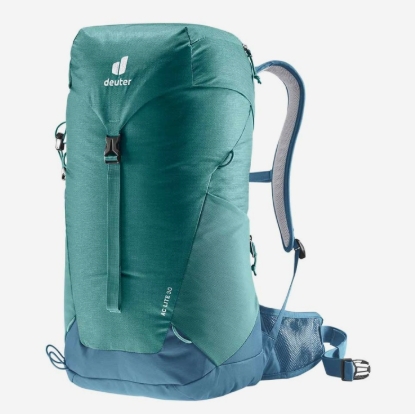When I think about my years spent in the mountains, one of the first things that comes to mind is how essential the right gear is. You can have the best boots, the most high-tech clothing, and a flawless plan, but if your pack fails you, the entire trip can quickly turn into a struggle. My relationship with Deuter started long before I considered myself an “expert.” It began on a damp trail in the Southern Alps, when I was still learning how to balance practicality with passion.
I remember the moment vividly. I had borrowed a friend’s old Deuter pack for a three-day trek. The weather was unpredictable, the kind of New Zealand spring where you face four seasons in a single afternoon. What struck me wasn’t just the comfort of the straps or the way the pack carried weight—it was the sense that it had been built with a deep understanding of the demands of the outdoors. Every pocket seemed exactly where I needed it, every adjustment intuitive, every detail thoughtful. That trip set a standard in my mind that no other brand quite reached.
As I advanced in my outdoor pursuits—first in trekking, then in alpine climbing, and later in guiding small groups—I became more aware of how gear shapes experience. Many backpacks promise versatility, but Deuter has a way of balancing technical performance with user comfort. The ventilation systems, for example, feel almost invisible in their function. On long summer hikes, when sweat would normally soak through my back, Deuter’s design kept airflow steady enough that I felt lighter, fresher, and more focused. It’s not something you notice at first, but after hours on the trail, it makes all the difference.
Over the years, I’ve also come to admire the durability. Outdoor gear takes a beating—sharp rocks, sudden downpours, overstuffed loads, and countless airport baggage belts. I’ve seen cheaper packs lose stitching, shoulder straps peel, and zippers jam within a season. My Deuter packs, however, have aged like seasoned companions. The wear tells stories of adventures, but the integrity remains intact. This kind of reliability builds trust, and trust in gear allows you to push further, to venture into tougher terrain, to rely on what you carry without hesitation.
There’s also something to be said about design philosophy. Deuter has always struck me as a brand that understands that an outdoor enthusiast is not just a customer but part of a larger community. Their packs are not overloaded with gimmicks, nor do they sacrifice function for style. Instead, they are balanced, pragmatic, and timeless. That is why when someone asks me for recommendations—whether they are a first-time hiker or a seasoned climber—I find myself returning to the same suggestion: try a deuter backpack nz and see how it transforms your journey.
One story stands out from a guiding trip I led along the Routeburn Track. A young hiker in the group was struggling with a rental pack that kept slipping and digging into his shoulders. After the first day, I offered him my spare Deuter, a pack I had used for years. By the second morning, his posture changed, his pace quickened, and by the third day he was walking at the front of the group, no longer weighed down by discomfort. Watching his confidence bloom reminded me of why the right gear matters. It doesn’t just carry equipment—it carries morale, momentum, and joy.
What I’ve learned as an outdoor expert is that the best brands don’t just make products; they create tools that become part of our stories. Deuter has accompanied me through rugged ridges, snow-lined passes, and quiet forest trails. Each pack has been more than storage—it has been an extension of myself, a partner that adapts, endures, and enhances every step.
